- Home
- Margaret Atwood
Murder in the Dark
Murder in the Dark Read online
The Author
MARGARET ATWOOD was born in Ottawa, Ontario, in 1939. During her childhood she spent many summers in the bush country of northern Ontario and Quebec. Upon graduation from the University of Toronto in 1961, she took her master’s degree from Radcliffe College the following year and went on to pursue doctoral studies at Harvard University.
Novelist and poet, critic and editor, Atwood is one of the most prolific and important writers of contemporary literature. Equally acclaimed as a writer of both fiction and poetry, she devotes much of her creative energy to giving literary shape to the aspirations, fears, and foibles of her society. Her many honours include the Governor General’s Award for Poetry, the Governor General’s Award for Fiction, the Los Angeles Times Fiction Award, the Giller Prize for Fiction, the Booker Prize, and several honorary degrees.
Margaret Atwood resides in Toronto, Ontario.
THE NEW CANADIAN LIBRARY
General Editor: David Staines
ADVISORY BOARD
Alice Munro
W.H. New
Guy Vanderhaeghe
Copyright © 1983 by Margaret Atwood, 1997 by O.W. Toad Ltd.
Afterword copyright © 1997 by Steven Heighton
First published in 1983 by Coach House Press
New Canadian Library edition 1997
All rights reserved. The use of any part of this publication reproduced, transmitted in any form or by any means, electronic, mechanical, photocopying, recording, or otherwise, or stored in a retrieval system, without the prior written consent of the publisher – or, in case of photocopying or other reprographic copying, a licence from the Canadian Copyright Licensing Agency – is an infringement of the copyright law.
Library and Archives Canada Cataloguing in Publication
Atwood, Margaret, 1939–
Murder in the dark : short fictions and prose poems
(New Canadian library)
eISBN: 978-1-55199-553-3
I. Title. II. Series.
PS8501.T86M871997 C813’.54 C97-930817-6
PR9199.3.A88M87 1997
Some of these pieces have appeared in Adam, Bread & Roses, Exile, Fireweed, Island, Littfass, Liturataz, The Lunatic Gazette, Quest, Tamarack Review, This Magazine, Time Out, and Toronto Life; some have been broadcast on the CBC programme Anthology.
The author wishes to thank the Guggenheim Foundation for helping to provide time.
We acknowledge the financial support of the Government of Canada through the Book Publishing Industry Development Program and that of the Government of Ontario through the Ontario Media Development Corporation’s Ontario Book Initiative. We further acknowledge the support of the Canada Council for the Arts and the Ontario Arts Council for our publishing program.
McClelland & Stewart Ltd.
75 Sherbourne Street
Toronto, Ontario
M5A 2P9
www.mcclelland.com/NCL
v3.1
Contents
Cover
The Author
Title Page
Copyright
I. Autobiography
Making Poison
The Boys’ Own Annual, 1911
Before the War
Horror Comics
Boyfriends
The Victory Burlesk
Fainting
II. Raw Materials
III. Murder in the Dark
Simmering
Women’s Novels
Happy Endings
Bread
The Page
IV. Mute
She
Worship
Iconography
Liking Men
Strawberries
Him
Hopeless
A Parable
Hand
Everlasting
Instructions for the Third Eye
Afterword
Other Books by This Author
I.
Autobiography
The first thing I can remember is a blue line. This was on the left, where the lake disappeared into the sky. At that point there was a white sand cliff, although you couldn’t see it from where I was standing.
On the right the lake narrowed to a river and there was a dam and a covered bridge, some houses and a white church. In front there was a small rock island with a few trees on it. Along the shore there were large boulders and the sawed-off trunks of huge trees coming up through the water.
Behind is a house, a path running back into the forest, the entrance to another path which cannot be seen from where I was standing but was there anyway. At one spot this path was wider; oats fallen from the nosebags of loggers’ horses during some distant winter had sprouted and grown. Hawks nested there.
Once, on the rock island, there was the half-eaten carcass of a deer, which smelled like iron, like rust rubbed into your hands so that it mixes with sweat. This smell is the point at which the landscape dissolves, ceases to be a landscape and becomes something else.
Making Poison
When I was five my brother and I made poison. We were living in a city then, but we probably would have made the poison anyway. We kept it in a paint can under somebody else’s house and we put all the poisonous things into it that we could think of: toadstools, dead mice, mountain ash berries which may not have been poisonous but looked it, piss which we saved up in order to add it to the paint can. By the time the can was full everything in it was very poisonous.
The problem was that once having made the poison we couldn’t just leave it there. We had to do something with it. We didn’t want to put it into anyone’s food, but we wanted an object, a completion. There was no one we hated enough, that was the difficulty.
I can’t remember what we did with the poison in the end. Did we leave it under the corner of the house, which was made of wood and brownish yellow? Did we throw it at someone, some innocuous child? We wouldn’t have dared an adult. Is this a true image I have, a small face streaming with tears and red berries, the sudden knowledge that the poison was really poisonous after all? Or did we throw it out, do I remember those red berries floating down a gutter, into a culvert, am I innocent?
Why did we make the poison in the first place? I can remember the glee with which we stirred and added, the sense of magic and accomplishment. Making poison is as much fun as making a cake. People like to make poison. If you don’t understand this you will never understand anything.
The Boys’ Own Annual, 1911
was in my grandfather’s attic, along with a pump organ that contained bats, rafter-high piles of Western paperbacks, and a dress form, my grandmother’s body frozen in wire when it still had a waist. The attic smelled of dry rot and smoked eels but it had a window, where the sunlight was yellower than anywhere else, because of the dust maybe. This buttery sunlight framed the echoing African caves where the underground streams ran, lightless, haunted by crocodiles, white and eyeless, guarding the entrance to the tunnel carved with Egyptian hieroglyphs and armed with deadly snakes and spiky ambushes planted two thousand years ago to protect the chamber of the sacred pearl, which for some reason, in stories like this, was always black. And when the hero snatched it out of the stone forehead looming bulbous and idolatrous there in the darkness, filthy was a word they liked, for other religions, the goddess was mad as blazes. Sinister priests with scimitars abounded, they could sniff you out like bloodhounds, their bare feet making no sound, until suddenly there was a set piece and down the hill went everyone, bounding along, loving it, yelling like crazy, bullets thudding into bodies into the scrub, into the surf, onto the waiting ship where Britain stood firm for plunder.
The issue with the last instalment had never come; it wasn’t in the attic. So there I was, suspended in m
id-story, in 1951, and there I remain, sometime, waiting for the end, or finishing it off myself, in a booklined London study over a stiff brandy, a yarn spun to a few choice gentlemen under the stuffed water buffalo head, a cheerful fire in the grate, or somewhere on the veldt, a bullet in the heart, who can tell where such greedy impulses will lead? Such lust for blind white crocodiles. In those times there were still chiefs in ostrich feathers and enemies worth killing, and loyalty, or so the story said. Through the attic window and its golden dust and flyhusks I could see the barn, unpainted, hay coming out like stuffing from the loft doorway, and around the corner of it my grandmother’s cow. She’d hook you if she could, if you didn’t have a pitchfork. She was sneaking up on someone invisible; possibly my half uncle, gassed in the first war and never right since. The books had been his once.
Before the War
In the old days, before the war, things were different. You could walk out to the end of the dock any day around five and cast a couple of times and there would be your walleye, for supper or breakfast, hang it all night from a tree branch so the bears wouldn’t get it, there were more bears then, they’d hang around the logging camps, you could go to the garbage dumps in the evenings and shoot them, I knew a man used a bow and arrow, not so good if you missed, more like real hunting though, he’d follow the trail of blood into the woods. They don’t have logging camps now, not the way they used to, in winter, with horses to drag the trees to the ice, then in spring they’d tow them, in a boom, shoot them downriver to the sawmill. It was swede saws and a double bitted axe, you can’t get a good one any more, once they forget how to make them it’d take you years to teach anyone and there isn’t the demand. They use trucks and bulldozers now, go in and level the place, hell of a mess, stumps and dead branches everywhere and no fish left to speak of, they fly in anyway now, in planes, something’s happened to the Indians too, they never used to drink in the bush, it was always whites drank in the bush and the Indians drank in town, the bush was too important for them to take the risk of getting drunk in it, too drunk and you set a fire. In those days every man turned out to fight a fire, if there was one you turned out. In a wind it would jump the crowns, cross islands even. You’d work, you’d sweat for days without sleep to stop that fire.
Now they set them on purpose to get the work. Nobody cares, it’s just a place to chew up the water with your speedboat on the weekends. It was wooden boats they made themselves and a five horsepower motor, in the old days before the war.
The sun goes down, in the west as always, peach-coloured clouds, there’s a shiver. It feels like waiting, but it isn’t. Not a sound but the wind, the soft trickle of the small waves under the dock. There’s no one here. One step off the path and there’s never been anyone here, you think perhaps wrongly that it could all still be saved, even now. This is the old days. This is before the war.
Horror Comics
When I was twelve my friend C. and I used to pinch horror comics from the racks in drugstores. They were only ten cents then. We would read them on the way home from school, dramatizing the different parts, in radio voices with sound effects, to show we were above it. The blood was too copious and lurid, the faces were green and purple, the screams overdone. We leaned against the low stone wall outside the funeral home, laughing so much that C., whose mother said she should never use the school toilets for fear of catching some unspecified disease, had to cross her legs and beg me to stop.
‘I’m really a vampire, you know,’ I’d say in a conversational tone as we walked along, licking our lime popsicles. Those we paid for.
‘No you aren’t,’ C. said, her voice uncertain.
‘You know I am,’ I said quietly. ‘You don’t have to be afraid of me though. You’re my friend.’ I dropped my voice an octave. ‘I’m really dead, you know.’
‘Stop it,’ said C.
‘Stop what?’ I said innocently. ‘I’m only telling you the truth.’
This occupied the four blocks between the funeral parlour and the gas station. After that we would switch to boys.
In winter, when it was dark after school, we threw snowballs at grownups, from behind, being careful to miss, doubling up with laughter because they didn’t even know they were being aimed at. Once we even hit someone, a middle-aged woman in a muskrat coat. She turned around and looked at us, white-faced and glaring. We ran away, shrieking with guilty laughter, and threw ourselves backwards into a snowbank around the corner, holding our stomachs.
‘The look on her face!’ we screamed.
But we were terrified. It was the look on her face, pure hatred, real after all. The undead walked among us.
Boyfriends
Once I made my own clothes. What drove me to it, those seams endlessly sewn and ripped out and sewn again, the index finger needlepointed, thread all over the floor? I was fifteen. It was the princess line then, poured against the midriff, down into a gored skirt, the breasts fluffed out above.
The dress I remember is pink. I’m walking in it across a field, shopping centre to the right, hill to the left with its hard line of square brick houses. I’m carrying books, and a notebook, binders they were called. Between my left arm and the houses walks another person, a boyfriend, not touching me. I can’t remember his name or what he looked like. It’s the dress I remember, and the fact that when it was too old or too small for me I cut off the gold button from the front and kept it, and threw the dress away. The boyfriend exists too, but as an area of darkness. Not in the sense of sinister, a shadow merely, under a tree, a smell you can’t identify, leather and banana peels or the vestibules of old movie houses, a whiff of the future. All I can see is the feet in their white and blue sneakers.
Another boyfriend, one I’m dancing with. It’s later because the dress is red, I can see that all right, the skirt flaring out on either side of his legs: I’m looking down. The boyfriend himself is a blur, because I’ve taken off my glasses, as I always did to go out. I never did know what he really looked like, and he never knew what I really looked like, during the day, when I could see. In those days I groped my way through the world of evening men by touch and smell alone, purblind with vanity. At arm’s length the boyfriends were shapes, solid at the core, misty around the edges and shining in the light from the streetlamps falling through the windows of the parked car. It was spring, everything was dense even after sunset with the smell of warm mud and the full moon, saturated with aftershave and breathing. The boyfriends were always slightly damp.
Up close they dissolved into texture, two square inches of skin, a fly’s view, every hair distinct, both clearer and more obscure. At those times it was their aureoles I missed, reaching my hand into that dim fuzzy egg of light and encountering only stuffed cloth, grey at that. What was I looking at? Like Mars from a landed rocket, they no longer shone.
The Victory Burlesk
I went to the Victory Burlesk twice, or maybe it was only once and one of my friends went the other time and told me about it. I enjoyed it both times. It was considered quite daring for young women to go to such a place, and we thought it was funny; it was almost as funny as church.
You got a stand-up comic, a movie and a man who sang or juggled plates, as well as the strip-tease act. They used a lot of coloured lighting, red and blue and purple. Each girl had a fake name: Miss Take, Miss Behave, Flame LeRew. I liked the names and the costumes, for their ingenuity, and I liked the more skilful girls, the ones who could twirl tassels or make their bellies or buttocks rotate in a circle. That was before they had to take it all off, there was an art to it, it was almost like the plate juggling. I liked the way they floated in the pools of coloured light, moving as if they were swimming, mermaids behind glass.
One woman began with her back to the audience, the spotlight on her. She was wearing long white gloves and a black evening gown with gauzy black sleeves that looked like membranous wings as she stretched out her arms. She did a lot with her arms and back; but when she finally turned around, she was old.
Her face was powdered dead white, her mouth was a bright reddish purple, but she was old. I could feel shame washing through me, it was no longer funny, I didn’t want this woman to take off her clothes, I didn’t want to look. I felt that I, not the woman on the stage, was being exposed and humiliated. Surely they would jeer and yell things at her, surely they would feel they had been tricked.
The woman unzipped her black evening gown, slipping it down, and began to move her hips. She smiled with her white mask of a face and her purple mouth, inside her lips her teeth glinted, dull white pebbles, it was a mockery, she didn’t intend it, she knew it, it was a trick of another kind but we didn’t know who was playing it. The trick was that suddenly there was no trick: the body up there was actual, it was aging, it was not floating in the spotlight somewhere apart from us, like us it was caught in time.
The Victory Burlesk went dead. Nobody made a sound.
Fainting
You’re upright, standing on two feet in the usual way, and then suddenly you have a different point of view, the roots of the trees instead of the leafy tops, closeup of the floorboards, with nothing in between but a narrowing down and a rushing sound which is like wings but not the wings of angels.
The first time I was nine, in a crowd of winter coats in a Victorian building, steam-heated, looking at a display of chicken embryos, one day, five days, each one stopped short and bottled. There were twins too, human ones, identical and fraternal, their arteries and veins injected with coloured rubber, the purple sea-fan placenta, greyish now, in with them. After that I was looking up at a forest of canvas overshoes and legs. I could not remember folding or the moment when my head hit the wooden floor.

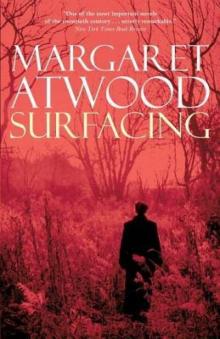 Surfacing
Surfacing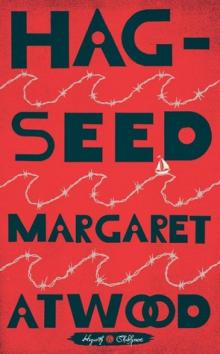 Hag-Seed
Hag-Seed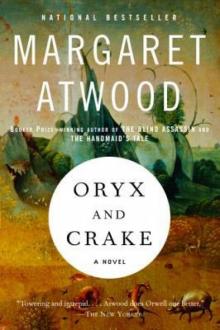 Oryx and Crake
Oryx and Crake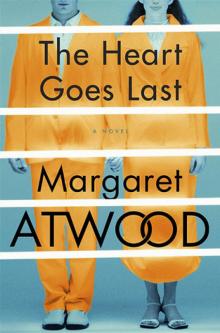 The Heart Goes Last
The Heart Goes Last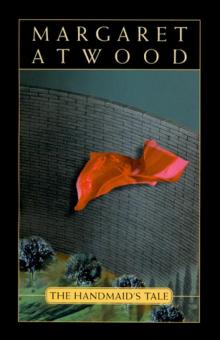 The Handmaid's Tale
The Handmaid's Tale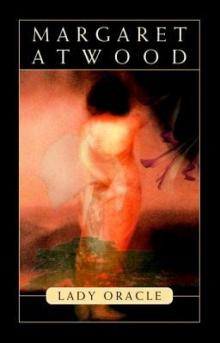 Lady Oracle
Lady Oracle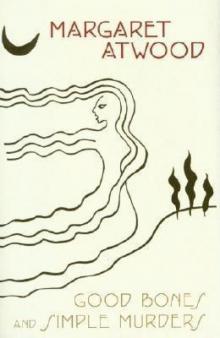 Good Bones and Simple Murders
Good Bones and Simple Murders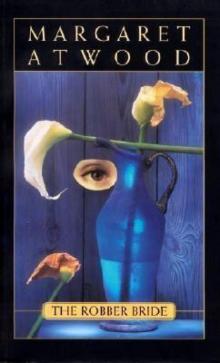 The Robber Bride
The Robber Bride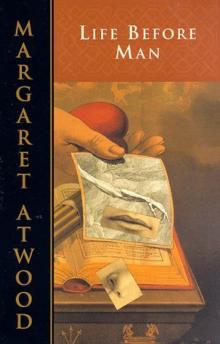 Life Before Man
Life Before Man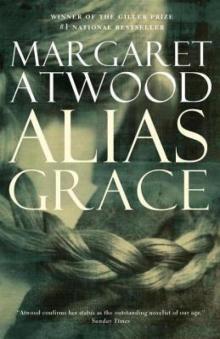 Alias Grace
Alias Grace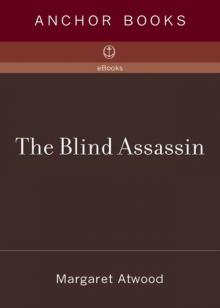 The Blind Assassin
The Blind Assassin Cat's Eye
Cat's Eye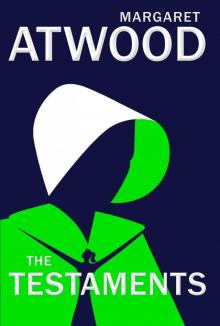 The Testaments
The Testaments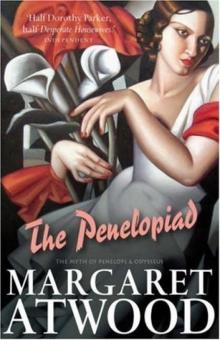 The Penelopiad
The Penelopiad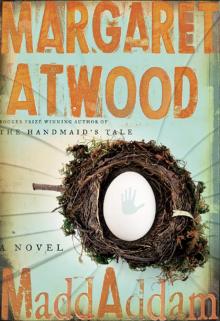 MaddAddam
MaddAddam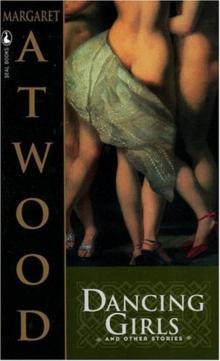 Dancing Girls & Other Stories
Dancing Girls & Other Stories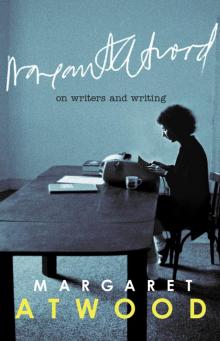 On Writers and Writing
On Writers and Writing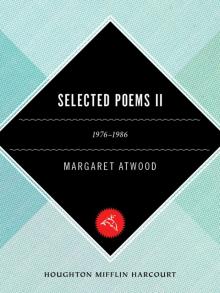 Selected Poems II (1976-1986)
Selected Poems II (1976-1986)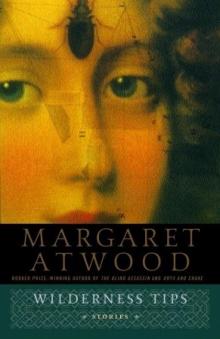 Wilderness Tips
Wilderness Tips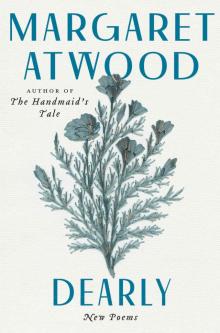 Dearly
Dearly The Tent
The Tent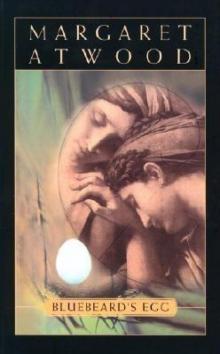 Bluebeard's Egg
Bluebeard's Egg The Edible Woman
The Edible Woman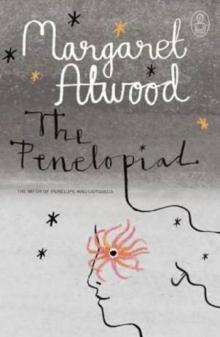 The Penelopiad: The Myth of Penelope and Odysseus
The Penelopiad: The Myth of Penelope and Odysseus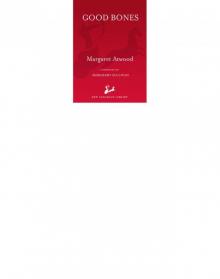 Good Bones
Good Bones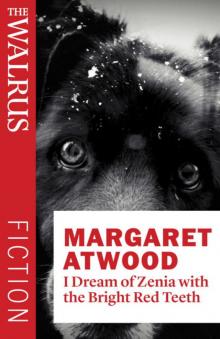 I Dream of Zenia with the Bright Red Teeth
I Dream of Zenia with the Bright Red Teeth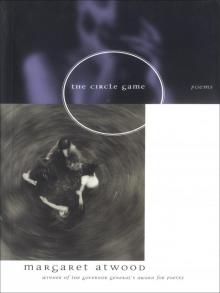 Circle Game
Circle Game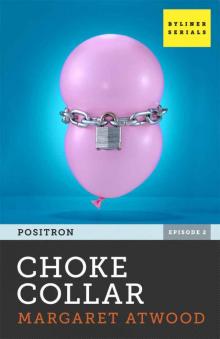 Choke Collar: Positron, Episode Two
Choke Collar: Positron, Episode Two Stone Mattress: Nine Tales
Stone Mattress: Nine Tales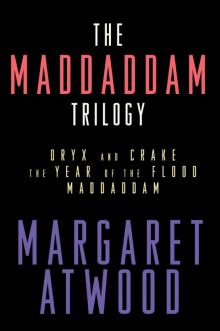 The MaddAddam Trilogy
The MaddAddam Trilogy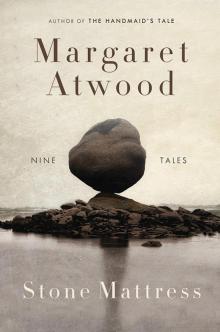 Stone Mattress
Stone Mattress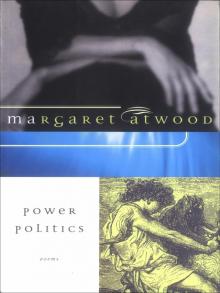 Power Politics
Power Politics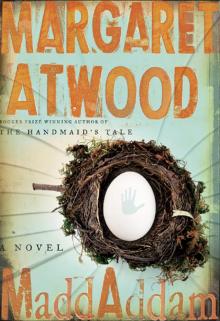 MaddAddam 03 - MaddAddam
MaddAddam 03 - MaddAddam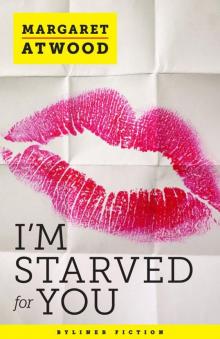 I’m Starved for You (Kindle Single)
I’m Starved for You (Kindle Single)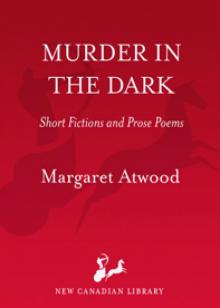 Murder in the Dark
Murder in the Dark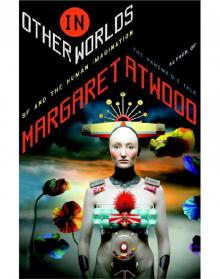 In Other Worlds
In Other Worlds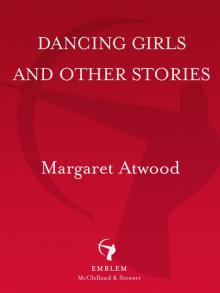 Dancing Girls
Dancing Girls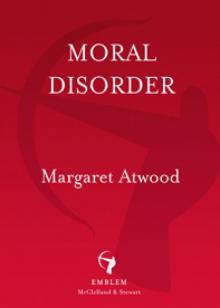 Moral Disorder
Moral Disorder